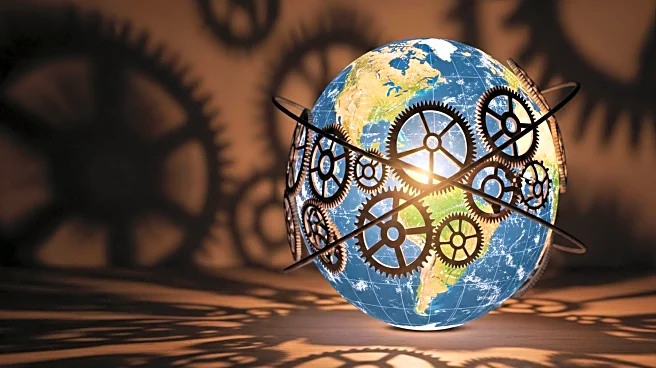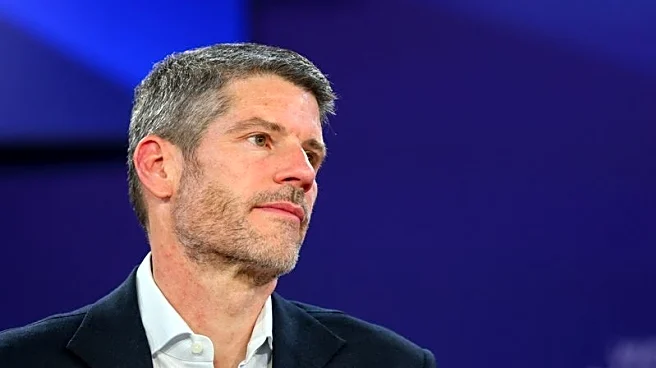What is the story about?
What's Happening?
External Affairs Minister S Jaishankar has emphasized the importance of a global workforce model, noting that many countries cannot fulfill their labor needs solely from their national populations. His comments were made during an event at the UN General Assembly session, in response to US President Donald Trump's new immigration policies, including a $100,000 fee on new H-1B visas. Jaishankar highlighted the demographic reality that demands cannot be met purely from national demographics, advocating for a more efficient global workforce model. India, as the largest source of overseas talent, is significantly impacted by these changes, with Indian professionals making up over 70% of H-1B visa recipients in the US.
Why It's Important?
The introduction of a $100,000 fee for H-1B visas by President Trump represents a significant shift in US immigration policy, potentially affecting the flow of skilled Indian professionals to the US. This fee could make the program unviable for many applicants, particularly those from lower-income backgrounds, and may reduce the availability of skilled labor in US tech firms and healthcare sectors. The policy is seen as a measure to protect US workers from being replaced by lower-paid foreign labor, but it also poses challenges for industries reliant on international talent.
What's Next?
The new visa fee could lead to a decrease in the number of Indian professionals seeking employment in the US, impacting sectors such as technology and healthcare that rely heavily on skilled foreign workers. Stakeholders, including businesses and advocacy groups, may push for policy revisions or seek alternative solutions to maintain access to global talent. The situation may also prompt discussions on international labor mobility and the need for a balanced approach to immigration policies.
Beyond the Headlines
The visa fee increase raises ethical and economic questions about the balance between protecting domestic workers and fostering international talent exchange. It may also influence global perceptions of the US as a destination for skilled professionals, potentially affecting its competitiveness in attracting top talent. Long-term, this policy could lead to shifts in global workforce distribution and impact bilateral relations between the US and countries like India.















